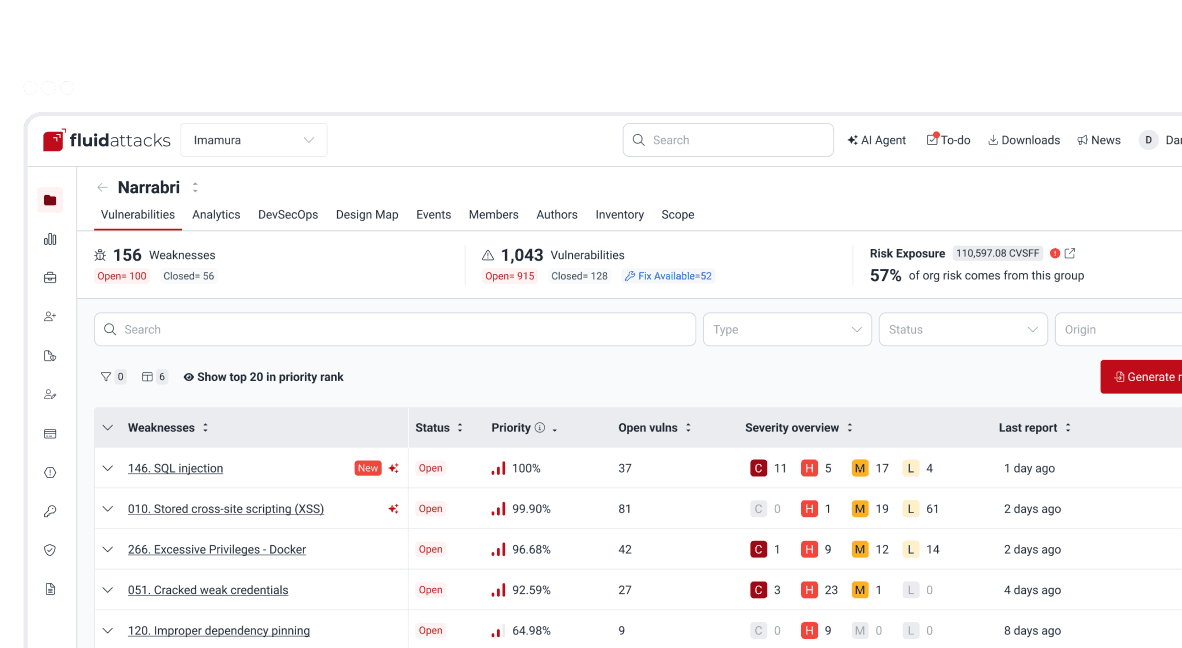Attacks
Liar, liar, pants on fire! Insider attack suspect was arrested this month


Content writer and editor
Updated
Dec 13, 2021
4 min
A fairly recent insider attack could be adapted as a stand-alone episode in a detective TV series: It's got the FBI, cybercrime and mystery; you suspect someone from the investigation team is the bad guy; it's revealed the criminal made some mistake that gives him away; all the pieces fall into place, and the episode ends with the guy being arrested.
Okay, maybe it wouldn't be your favorite episode, but, again, you're a cybersecurity enthusiast and it's got an optimistic ending, so it's a must-see. Sit back and read the plot.
Rising action
The attack was centered around Ubiquiti, a New York-based technology company known for its cloud-enabled Internet of Things devices. In late December 2020, some of the company's employees found out that a person with administrative access had been exfiltrating data from the company's GitHub repositories. An incident response team was formed and they found that the attacker had used a Surfshark Virtual Private Network (VPN). A VPN provides privacy by masking the user's IP address with that of a VPN server and encrypting their internet traffic. At least one of the members of the team alleged he had never used Surfshark VPN himself.
After this discovery, senior employees at Ubiquiti got an email from the attacker demanding a 50BTC ransom be paid (which equaled about $1.9M at that moment) before January 10 at midnight. If they paid, the extortionist would remain quiet about the breach, give the stolen files back, and provide information about the vulnerability he exploited and a backdoor he installed. Backdoors are programs that allow the attacker to access the host's functions and data remotely.
Because Ubiquiti didn't pay the ransom, the attacker sent a message saying "No BTC. No talk. We done here." With the message came a link to a public folder containing some of Ubiquiti's proprietary data. The company acted quickly and got the folder removed.
On January 11, the company finally communicated to their customers that they became aware that someone had gained unauthorized access to their systems hosted by a third-party cloud provider. Although they didn't know if user data was compromised, they encouraged their customers to change their passwords.
Unmasking the villain
The company, reportedly, didn't pay the ransom and called law enforcement instead. A suspect was identified promptly: The man who appeared as the owner of the PayPal account that was used to purchase the Surfshark account mentioned earlier. In a very incriminating fashion, the VPN connection failed during the intrusion, which means that the intruder's real IP address was temporarily exposed. The exfiltration of files even stopped at the time the suspect's internet connection went down at his residence, and resumed as his internet service was reenabled. All the evidence pointed in the same direction!
Who was this person? Well, he was one of the developers at Ubiquiti. He was one of the guys on the incident response team! Really! One who said he had never used Surfshark! (Gasp!) It was proven he even used his own work credentials to access the repositories. No vulnerability exploitation was really needed nor performed. The FBI confronted the individual on March 24 and searched his home and seized devices. He had cloned the company's repositories on GitHub to his computer. However, he denied having anything to do with the incident. He even suggested that someone else might have used his PayPal account to pay for the VPN.
We do not know the motivations for this attack, apart from monetary gain. However, according to the investigation, the suspect had already applied for another job in December, the day before the attack.
So what's the truth?
Days after the FBI searched the suspect's residence, an anonymous informant reached out to the media. He said that the claim that the compromise involved a third-party cloud provider was a fabrication. According to him, the intruders had gained administrative access to Ubiquiti's servers at Amazon Web Services (AWS). Critically, he informed that the company had insufficient logging and thus could not prove nor disprove what the intruders had accessed. So, whether customer account credentials were compromised could not be ruled out. With the credentials, the adversaries might authenticate to a myriad of cloud-based devices. He also informed that the attack was against Ubiquiti and, instead, they wanted to make everyone believe the company was "merely a casualty" of the attack against AWS. In a letter to the European Data Protection Supervisor, the whistleblower said: "The breach was massive, customer data was at risk, access to customers' devices deployed in corporations and homes around the world was at risk."
Now, something we all should know is cloud service providers secure the underlying server hardware and software but require the cloud tenant to guarantee the security of any data stored there. The whistleblower's account didn't paint a pretty picture for Ubiquiti. After this story, Ubiquiti's stock prices fell by approximately 20% resulting in loss of over $4B in market capitalization.
Happy ending scene
The FBI identified the whistleblower as the very suspect. Yeah! He posed as the anonymous informant trying to mislead the public! But, ultimately, the evidence didn't help his case. He was fired on or about April 1, and the Department of Justice announced his arrest on December 1. Their press release states he is charged in four separate counts:
The first count charges him with transmitting a program to a protected computer that intentionally caused damage, which carries a maximum sentence of 10 years in prison. The second count charges transmission of an interstate threat, which carries a maximum sentence of two years in prison. The third count charges wire fraud, which carries a maximum sentence of 20 years in prison. The fourth count charges the making of false statements to the FBI, which carries a maximum sentence of five years in prison. The maximum potential sentences are prescribed by Congress and are provided here for informational purposes only, as any sentencing of the defendant will be determined by the judge.
We watch the end of the story with a bit of satisfaction, knowing that the attacker was caught.
Get started with Fluid Attacks' PTaaS right now
Other posts



















